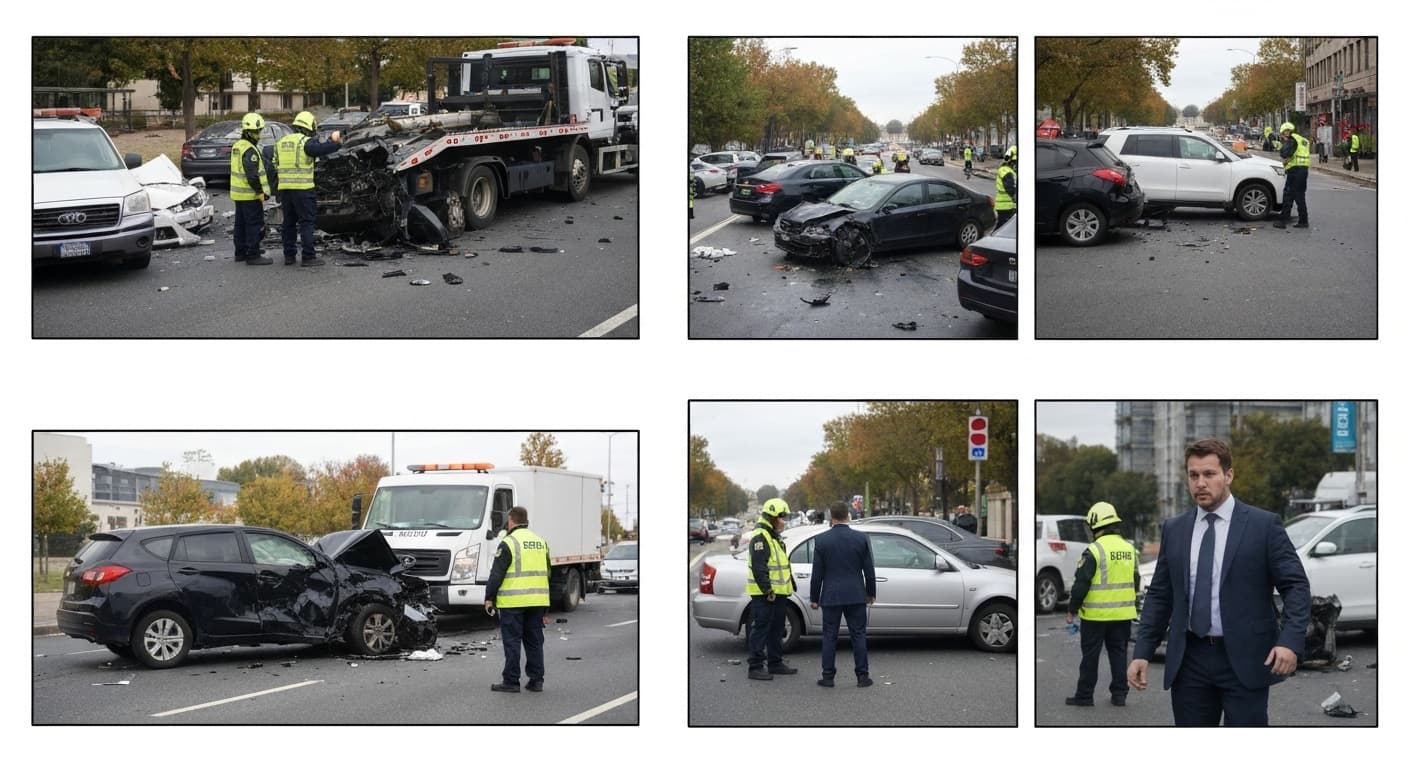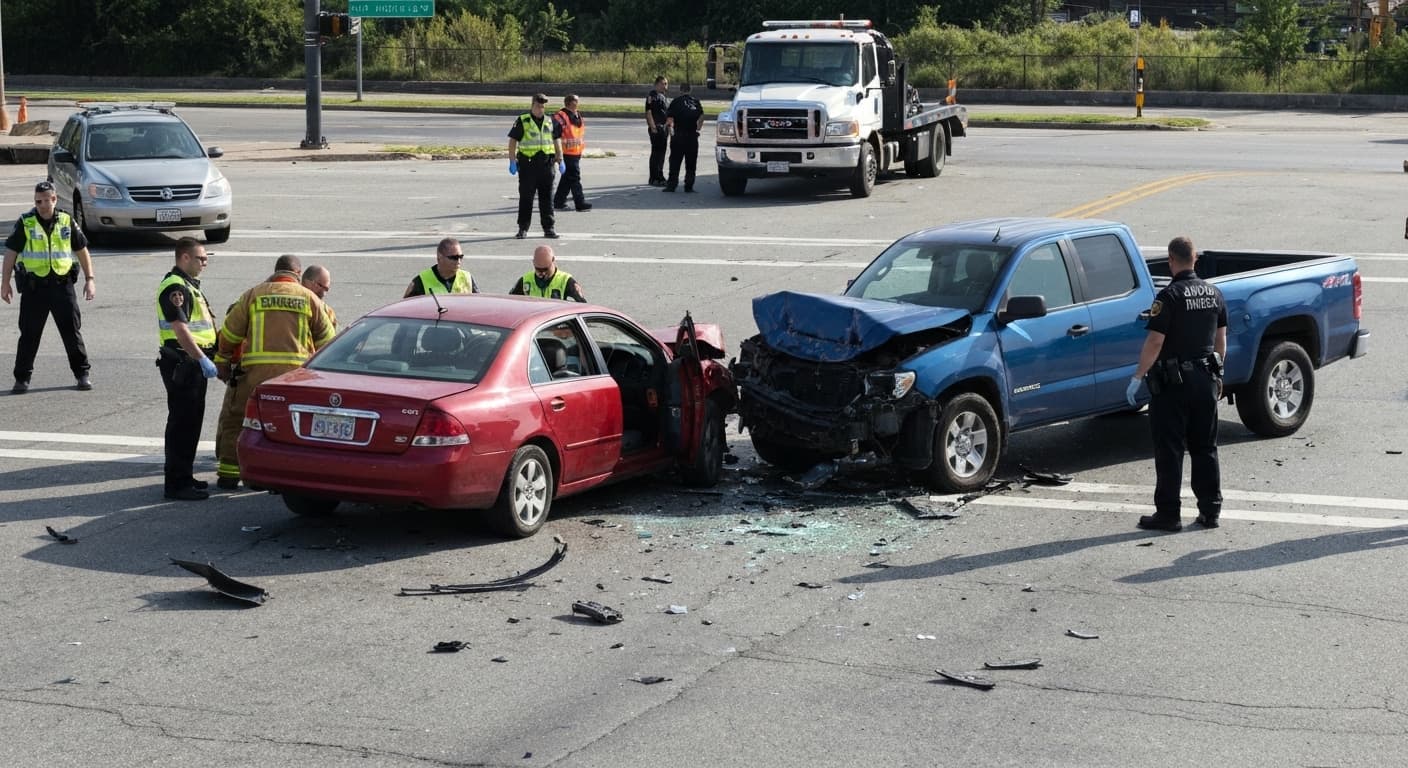
Should You Admit Fault at the Accident Scene?
Learn why you should never admit fault at an accident scene and what to say instead to protect your legal and financial interests.
# Should You Admit Fault at the Accident Scene?
No, you should never admit fault at an accident scene. Even if you think you caused the accident, admitting fault can seriously damage your legal and financial interests. Here's why you should avoid fault admissions and what to say instead.
Why Never Admit Fault
Legal Consequences
Admissions Can:
- Be used against you in court
- Reduce or eliminate your compensation
- Increase your liability
- Affect insurance coverage
- Impact criminal proceedings
You May Be Wrong
Common Scenarios:
- Other factors contributed to the accident
- The other driver was also negligent
- Road conditions played a role
- Vehicle defects were involved
- Traffic signals malfunctioned
Incomplete Information
At the Scene You Don't Know:
- All contributing factors
- Other driver's actions
- Mechanical failures
- Road defects
- Weather impacts
- Traffic signal timing
What NOT to Say
Avoid These Phrases
Never Say:
- "I'm sorry"
- "It was my fault"
- "I didn't see you"
- "I was going too fast"
- "I was distracted"
- "I should have been more careful"
Avoid Speculation
Don't Discuss:
- What you think happened
- Why the accident occurred
- Who you think is at fault
- What you should have done differently
What TO Say Instead
Stick to Facts
Appropriate Responses:
- "I was traveling north on Main Street"
- "The light was green when I entered"
- "I was in the right lane"
- "I applied my brakes"
- "Are you injured?"
Express Concern
Caring Responses:
- "Are you okay?"
- "Do you need medical attention?"
- "Should we call 911?"
- "Let me help you"
Be Cooperative
Helpful Statements:
- "Let's exchange information"
- "I'll call the police"
- "Here's my insurance information"
- "Did anyone see what happened?"
Why People Admit Fault
Natural Reactions
Common Reasons:
- Shock and confusion
- Guilt and remorse
- Desire to be helpful
- Social politeness
- Assumption of responsibility
Emotional Responses
Understandable But Harmful:
- Feeling bad about the accident
- Wanting to comfort others
- Trying to take responsibility
- Attempting to resolve quickly
The Investigation Process
Professional Determination
Fault Is Determined By:
- Police investigation
- Insurance company review
- Accident reconstruction
- Witness statements
- Physical evidence
- Traffic laws
Multiple Factors
Investigations Consider:
- Traffic violations
- Road conditions
- Weather factors
- Vehicle conditions
- Driver actions
- Mechanical failures
Comparative Fault
Shared Responsibility
Often Both Drivers:
- Contributed to the accident
- Made mistakes
- Could have prevented it
- Share some fault
Percentage of Fault
Examples:
- You: 30% fault, Other driver: 70% fault
- You: 10% fault, Other driver: 90% fault
- You: 50% fault, Other driver: 50% fault
Impact on Compensation
Fault Percentage Affects:
- Your compensation amount
- Other party's compensation
- Insurance claim outcomes
- Legal liability
Insurance Implications
Claim Impact
Admissions Can:
- Reduce settlement amounts
- Increase your liability
- Affect coverage decisions
- Impact future premiums
Insurance Company Use
Your Statements May:
- Be recorded and used later
- Influence claim decisions
- Affect settlement negotiations
- Impact coverage determinations
Legal Implications
Court Proceedings
Admissions Are:
- Admissible evidence
- Difficult to overcome
- Damaging to your case
- Used by opposing attorneys
Criminal Cases
Fault Admissions Can:
- Support criminal charges
- Influence plea negotiations
- Affect sentencing
- Create additional liability
Protecting Yourself
Stay Calm
Emotional Control:
- Take deep breaths
- Think before speaking
- Focus on safety first
- Avoid emotional reactions
Be Helpful Without Admitting
You Can:
- Assist injured parties
- Call for help
- Exchange information
- Cooperate with police
- Be polite and respectful
Document Everything
Gather Evidence:
- Take photos
- Get witness information
- Note road conditions
- Record damage
- Preserve evidence
Dealing with Pressure
Other Driver Pressure
If They Say:
- "Just admit you caused it"
- "We can handle this ourselves"
- "Your insurance will cover it"
- "It's obviously your fault"
Respond With:
- "Let's let the insurance companies decide"
- "I prefer to follow proper procedures"
- "We should call the police"
- "Let's exchange information"
Insurance Pressure
Avoid:
- Quick admissions
- Recorded statements without attorney
- Signing documents immediately
- Accepting blame
What About Apologies?
"I'm Sorry" Problems
Can Be Interpreted As:
- Admission of fault
- Acceptance of responsibility
- Legal liability
- Guilt acknowledgment
Better Alternatives
Express Concern With:
- "Are you hurt?"
- "This is terrible"
- "I hope everyone's okay"
- "Let's get help"
Professional Advice
Consult an Attorney
Get Legal Help If:
- You made admissions
- Serious injuries occurred
- Fault is disputed
- Insurance problems arise
Insurance Guidance
Contact Your Insurer:
- Report the accident promptly
- Provide factual information
- Ask about coverage
- Follow their guidance
Conclusion
Never admit fault at an accident scene, even if you believe you caused the accident. Fault determination is a complex process that should be left to professionals who can consider all factors and evidence.
Stick to facts, express concern for others, and cooperate with authorities without making admissions. This approach protects your legal and financial interests while still being helpful and responsible.
Remember that accidents often involve multiple contributing factors, and initial impressions about fault are frequently wrong.
Key Takeaway: Be helpful and cooperative without admitting fault. Let professionals determine responsibility based on complete investigation.
---
Made admissions at an accident scene? Contact an experienced car accident attorney immediately to protect your rights and minimize potential damage.


